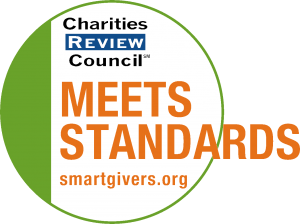Impact and Programs
Accomplishments
In 2022 TLP completed the water installation for Ikombolinga Village (population 7,300). It included the well, pumphouse, 2 reservoirs, 23 distribution points, and a cattle trough. Work then began in Chitope Village (population 7,762). Each water project includes men’s and women’s seminars taught by local Tanzanians. These seminars educate on human rights and cultural change that benefits the social health of the community and reflects the laws of Tanzania.
Proper sanitation and hygiene lead to healthier lives. TLP provided WASH (WAter, Sanitation and Hygiene) training to 8 villages and 16 schools in 2022. Once a village has access to clean water and implements WASH practices, the overall health of a village is immensely improved.
More girls continue their education without disruption thanks to TLP’s Menstrual Hygiene Management (MHM) program. The team trained women and girls in 2 villages on the use and care of reusable feminine hygiene kits, distributing 1,000 kits. Using the kits for MHM eliminates former stigma and school and work can continue without monthly disruption. TLP also introduced the villages to two women-led local businesses that sew feminine hygiene kits. This will serve as their resource to obtain additional/replacement kits moving forward.
Sustainability equals success! Since 2005, all our village water systems continue to be operational, due to the dedication of village leaders and residents who implement a governance structure and operational procedures taught by TLP. Our villages also share experiences in a “Best Practices” seminar sponsored by TLP where both problems and various solutions are discussed.
Current Goals
This year TLP will complete Chitope Village’s water project and begin a new project in Chipanga Village. Each water project follows these steps:
• Obtains villagers’ commitment to the project: contribution of labor and care for the system.
• Men and women attend educational empowerment seminars on human rights and cultural change benefitting the community’s social health and reflecting Tanzanian laws.
• An equal number of men and women form a Human Rights Committee, creating a list of Human Rights By-Laws for village implementation.
• Village forms a Community Based Water Supply Organization (CBWSO) to govern their new water system.
• An independent water agent is selected to operate the water system. They enter into an Agency Agreement with the village and an Operating Agreement with the village and TLP.
• Upon implementation of the water system, villagers provide land and physical labor as their contribution to the project.
• Men, women, and children are trained on WASH (WAter, Sanitation, and Hygiene) practices. Attending serves as contribution to the water project.
• Girls and women attend Menstrual Hygiene Management (MHM) training on proper care and use of reusable feminine hygiene kits. They no longer experience stigma and are more productive in their community at school and work.
• Villagers participate in Monitoring & Evaluation of Empowerment/Human Rights, WASH, and MHM as their contribution to the water project.
• Ongoing training and transition takes place during the 3-year warranty of each water project leading to project sustainability.
• TLP’s sponsors annual Best Practices Seminar for villages to share both problems and solutions.
Community or Constituency Served
Remote villages in Tanzania Africa without access to clean water
Geographic Area Served
Central Tanzania, Africa
